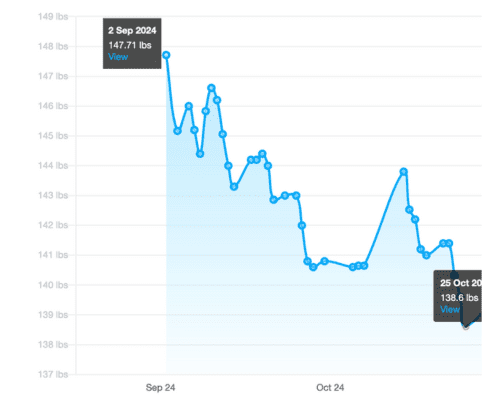How Does Lack of Sleep And Stress Affect Fat Loss?
last updated: Aug 13, 2o20 by Michael Fouts
Read time: 3 min.
The CDC recommends you sleep around 7 hours or more if you are between the ages of 18 and 60. And, sleep quality matters too; 8 hours of interrupted sleep isn’t 8 hours of sleep. Let’s take a closer look and how lack of sleep affects weight loss.
How Lack of Sleep Affects Fat Loss:
- Higher Caloric Intake and Slower Fat Loss
- Studies have shown that sleep deprivation increases food intake in adults. Research has shown that lack of sufficient sleep would compromise the efficiency of a caloric deficit. Results from the research show that by sleeping 8.5 hours a day, participants in the studies lost more fat as compared to the other group of participants who only slept 5.5 hours a day. Both groups of participants were in a caloric deficit.
- Lackluster Workouts
- With insufficient sleep you are more likely to skip the gym, as you have that mental battle of how bad you really want that hot bod. Further, when you are sleep deprived, you don’t quite “bring it” to each session and your overall energy output is definitely lower.
- Affects Key Hormones – Ghrelin, Leptin, Insulin, and Testosterone
- Research has shown that sleep deprivation changes the concentrations of hunger cue hormones Ghrelin and Leptin. This change is seen as an increase in the concentrations of ghrelin, which is a hormone that increases appetite, and decrease in leptin, a hormone that decreases your appetite. What this means is, lack of sleep will results in your brain “telling you” more often that you are hungry and likely results in higher calorie consumption. What about Insulin? Research shows that insufficient sleep can disrupt fat metabolism and reduce the ability of insulin to regulate blood sugars. Excess insulin makes you hungrier during the day and your body ends up storing more calories as fat. Overall effect: You are much more “hangrier” than you should be and you’re more likely to consume more calories than you need. Lastly, it’s been shown that insufficient, misaligned, and disrupted sleep lowers testosterone. Testosterone, in both males and females, is a potent fat metabolizer and muscle building hormone; you don’t want this hormone’s levels lower for weight loss.
Now let’s talk about Stress.
Hоw dоеs Strеss аffесt Fat Lоss?
- Increased Cortisol levels
- Sustained and elevated cortisol is no beuno because high cortisol levels make your cells less responsive to Insulin. This causes your body to produce more insulin. If your Insulin levels are high, your body is a lot less likely to release fat from it’s fat cells. This basically traps the fat you have in their cells, even when on a diet. Further, with high cortisol over a long period, and therefore higher Insulin, this prevents fat being from being utilized as a fuel source and shifts, when the body needs fuel, the preference to muscle glycogen and muscle as a fuel source. This is obviously bad since you want to maximize the amount of lean muscle you have because it plays a big role in determining your daily maintenance caloric intake.
- Altered Leptin and Ghrelin Regulation
- Again with the Leptin and Ghrelin? Yup. Just like with lack of sleep, increase cortisol levels reduce your body’s sensitivity to leptin signals = you’ll likely improperly regulate your food intake as you’ll be feeling hungry.
- Comfort and the Serotonin Binge
- People relieve their stresses in different ways. Some people exercise, some meditate, some resort to alcohol, and some people eat food when stressed (I’m guilty of this). Whatever it is, it gives them comfort or some type of relief. This relief is brought on by an increase of serotonin in their brain, that feel good response you get from doing these activities. As such, being stressed causes you to search for that serotonin release for that momentary escape – however long – from what is stressing you.
So as you can see there are a lot of negative affects of stress and inadequate sleep on weight loss. What ends up happening during weight loss if you’re sleep deprived and/or stressed, if you do lose weight that is: you end up burning less fat and more muscle.
This is not ideal, so get some damn sleep and stop stressing so much! Just kidding, I know, easier said than done. I’m pretty good at managing my stress, but I struggle with getting adequate amount of sleep. I tend to “burn the candle at both ends” but it’s something I’m working on, and you can too.
If you need some help managing your stress, some of these tips can help.
Till next time,
-Mike






